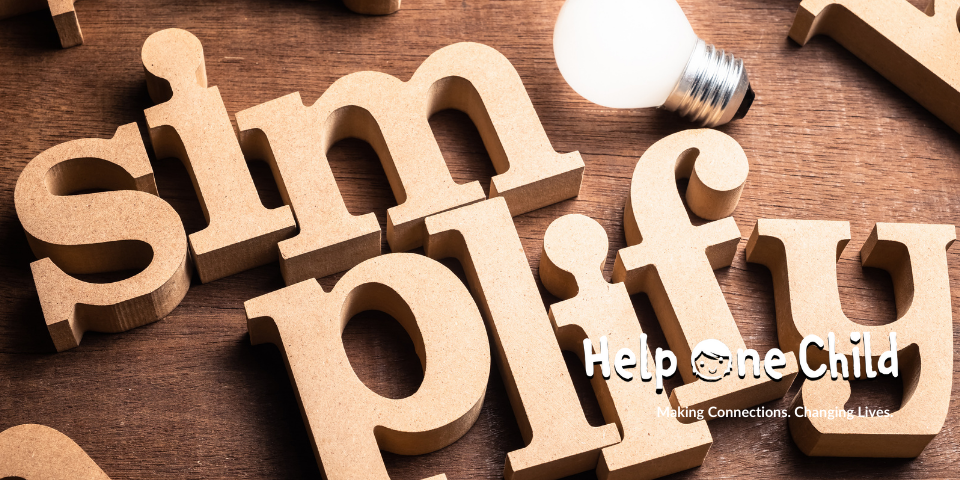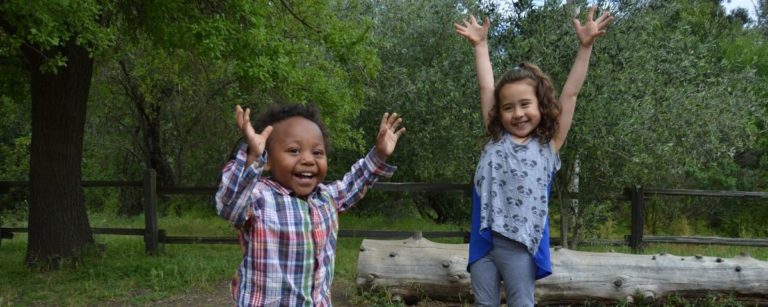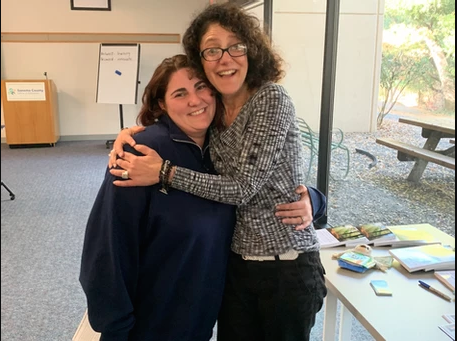Intentionally Simplifying to Address Children’s Trauma Related Behavior
It isn’t always easy to predict or understand our children’s behavior. Sometimes it’s due to a minor inconvenience (you didn’t wash their favorite sweater) or a major disappointment (a party is cancelled because the birthday girl is sick.) They get mad at you because you’re there!
But consider this: your child isn’t giving you a hard time, they are having a hard time. This profound mindset shift can be a game-changer in dealing with children who exhibit challenging trauma-related behavior.
As we recognize that children use behavior to communicate stress when they are overwhelmed, we can respond with greater compassion and willingness to support the child.
Renowned trauma expert Dr. Karyn Purvis agrees that “behavior is the language of children who have lost their voice.”
Research shows that children with a history of trauma, including prenatal substance exposure, abuse, and neglect, are hard-wired with a smaller “window of stress intolerance” than a typically functioning child. This means that these children have much less ability to cope with the stressors, upsets and overwhelming incidents that come up in their day. It does not take much to send these children out of this window of tolerance and past their breaking point. The result is explosive behavior in the form of emotional meltdowns and aggression. If you are dealing with this type of behavior frequently, it is a sign that your child is experiencing a higher level of stress than their coping skills can manage.
We can proactively reduce the stress and overwhelming episodes in a child’s day to minimize the chances of a child reaching their breaking point. Focus on simplifying in the following 4 realms:
1. Physical environment:
A cluttered home with excessive possessions and toys is stressful and overwhelming to all who live there. Pare down as much as possible. Leave the “passive, open-ended” toys that don’t do anything without the child’s imagination. Research strongly supports that fewer toys are much better for children and invite deeper, creative and more imaginative play. “Passive toys make active children and active toys make passive children” (Magda Gerber). A simplified home also contributes to calmer parents, who are then able to respond to challenging behavior in a more grounded and thoughtful way.
2. Rhythm:
A routine, consistency and predictability are powerful therapeutic techniques for your children because they are grounding, calming and securing. Unpredictable, erratic days are anxiety provoking for kids, particularly since this is likely what life was like before they came to you. Anchor your days with predictable mealtimes and regular routines before school, after school and after dinner. Post the daily and weekly schedule and help your child to review those frequently.
3. Schedule:
Over-scheduling children is stressful for them as well as the whole family, and research shows there is no benefit to anyone. Frenetic schedules make frazzled children. Limit activities to allow for things that are much more beneficial to them, like downtime, outdoor play and family connection. Resist the temptation to respond to boredom with screens. Creativity lies just on the other side of boredom. When children are forced to figure out what to do, they begin to read, draw, dabble in the kitchen or pick up a musical instrument. Allow time for this.
4. Filtering out:
Be mindful of the conversations children are overhearing on a daily basis. Many topics like sensitive details about their case, scary facts about Covid, family financial concerns etc. are beyond their developmental readiness and not appropriate for their ears. Protect your children from upsetting information or conversations.
Moderate behavioral challenges can be profoundly impacted by these principles of simplification, particularly if they are coupled with trauma based parenting strategies. If the challenging behaviors are extreme, the principles can be combined with professional intervention and therapies. When these modalities are paired together the result is a powerful reduction in the stress and feelings of overwhelm that fuel challenging trauma-related behaviors.
Claudia Mercier, LCSW, is passionate about addressing children’s behavioral challenges, particularly trauma-related behaviors, by intentionally simplifying all facets of family life. Her specialized training as a licensed clinical social worker is the treatment of depression. Claudia and her husband have a large foster adopted family with seven children ranging from 2-24 years old. They have fostered children for over 15 years while raising 5 children born into their family at the same time. Approximately 3 years ago, Claudia launched The Foster Village, a ministry in the East Bay that encourages people to foster and then wraps around and supports those families. The group started off with two families and now has 160+ involved in the ministry! Claudia also facilitates the monthly Support Group in Walnut Creek for foster, adoptive and kinship parents.









